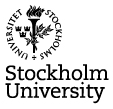Dr Joshua Cinner on coral reefs in the Indo-Pacific
Dr Joshua Cinner will on Thursday 7 September 2006 hold the seminar "Comparing Marine Protected Areas and Customary Management of Coral Reefs in the Indo-Pacific".
We explored how coral reef resources were being conserved at four national parks, four co-managed reserves and three traditionally managed areas in Indonesia and Papua New Guinea.
It was revealed that few ecological parameters were higher inside managed areas when compared to nearby, unmanaged areas. Average fish size and biomass were higher inside all areas under customary management and at one co-managed reserve.
Effective conservation was positively related to compliance, visibility of the reserve and length of time the management had been in place, but negatively related to market integration, wealth, and population.
On the surface, this would seem as though customary management would provide a solid foundation for coral reef conservation. However, the utilitarian nature of customary management is not always congruent with the models and ideas of conservation scientists and practitioners.
Furthermore, social, economic, and demographic transformations may erode the social processes that allow communities to employ and maintain customary management.
About Joshua Cinner
Dr Joshua Cinner works at ARC Centre of Excellence for Coral Reef Studies, James Cook University, Townsville, Queensland, Australia.
He holds a Master's degree in Marine Affairs and a PhD from James Cook University. His research is strongly applied and focuses on using social science to improve coral reef management.
His interest began while working as a volunteer in Jamaica, where he witnessed how conventional conservation strategies failed because they did not understand the social, economic, and cultural needs of resource users.
He has worked with coastal peoples in Jamaica, Mexico, Papua New Guinea, Kenya, Madagascar, Indonesia and USA, both to do research and in order to develop and guide conservation programs.
Time and place
Place: Linné Hall, the Royal Swedish Academy of Sciences Lilla Frescativägen 4, Stockholm
Vacancies | Contact | Environmental policy | Cookies
Stockholm Resilience Centre
Stockholm University, Kräftriket 2B | Phone: +46 8 674 70 70 | info@stockholmresilience.su.se
Organisation number: 202100-3062 | VAT No: SE202100306201


